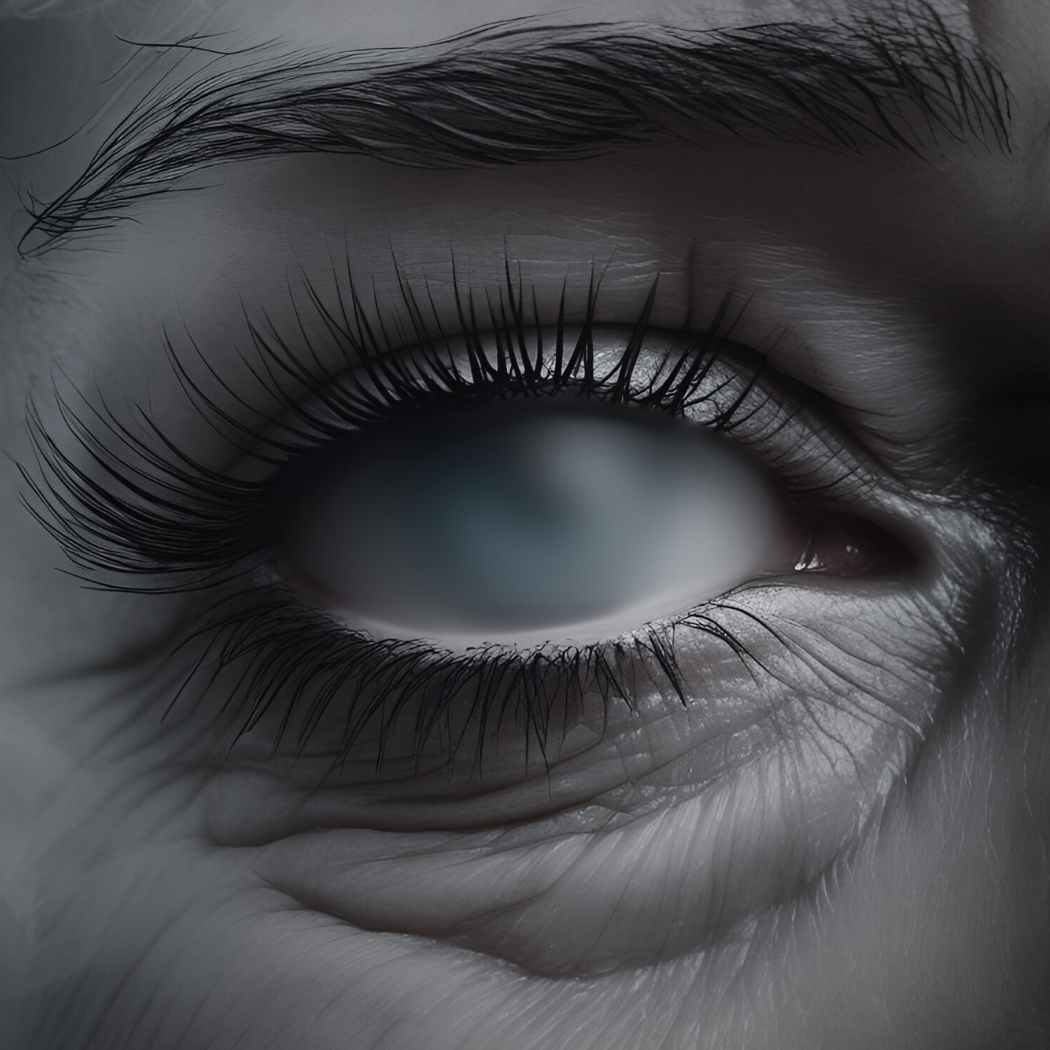Guilt is a mercurial mistress. We all know her, and sometimes she’s extremely valuable. She’s also known for popping up at 3 AM when you are trying to fall asleep and she can be a real insufferable twat. She does have some purpose, though. Like keeping us in between the white lines and checking our behavior when we might otherwise push situations too far and head into the blackness. In real time, ideas and fear of guilt are unbelievably strong motivators to do the right thing. To course correct. Guilt, by definition, is the concept that something (an activity, thought, etc…) is considered normatively wrong and could cause harm to others.
Guilt from eons ago, the kind that has lingered around like a drunk uncle at Christmas, has no utility; lessons from it are likely not very applicable to our reality today. Memories fade and facts become distorted and there’s no real way to address it purposefully and completely or make amends. This variety is hard to grab onto and I’ll call it coulda-shoulda-woulda (CSW) guilt. Sort of the hindsight is 20/20 version. We look back and still feel crappy about a particular situation but we don’t have enough facts or temporal proximity to unpack it and get rid of it for good. You know what I’m talking about, too. Those pesky thoughts of, “oof, what a shit I was…I don’t remember why…” It sort of just lingers. It feels yucky, but you just live with it. And it doesn’t really impact your day-to-day existence.
Annoying though it is, CSW guilt isn’t atrocious. Just a nuisance. The worst kind, in my mind, is the type you place upon yourself for not being able to do the right thing or the wrong thing. But you know the badness and gross feelings originate with you. This is the kind of guilt with resonance, deepness, and it can be an extremely destructive force. We carry it around with us like an albatross around our neck, rethinking the situation over and over, being defined by it and letting it distort our memories. It keeps us from finding happiness, peace, and purpose.
Maybe you didn’t know what to do in a particular situation and you froze; guilt could stem from inaction. Which is to say, just because you didn’t do something patently wrong doesn’t necessarily mean your hands are clean. The reverse holds true, too. A lack of or inability to do the right thing is not an implication of wrongdoing. This is all a convoluted way of saying that shit happens, and sometimes you’re burdened by things way outside of your control.
Regardless of your brand of guilt, it all operates the same way. It lives in the extremes; there is no soft spot to sit and assess the contrasting worlds of black and white. We never measure it with temperance or pragmatism because we can’t. It is all or nothing. And that’s fucked up.
As this applies to me, the single biggest contributor to my feelings of guilt involve my husband. I’m not talking about the garden-variety kind that help control our behaviors today and tomorrow, or the fact that I always save the best tomatoes for myself. I’m addressing the yucky kind that grabs ahold and won’t let go.
When I met my husband, I was 26 years old. It was in the 1990s. That seems like forever ago. I was relatively new to my life, having recently uprooted myself from the place where I was born to build something of my own. We met on the heels of a bad breakup (mine) and I had resigned myself to being single. A blind date and fate had other plans for me.
As I noted in a previous post, despite my general disgust for my father, he did have some redeeming qualities. As a child who so desperately sought out the love and affection of my deeply dysfunctional family, I came to idealize those traits. And I was particularly attracted to men who apparently shared those behaviors. I didn’t know it at the time. And I’m mortified by it all now.
Come to find out, this is a real thing. Psychologists call it imprinting, and women who marry men tend to gravitate to those that share characteristics with their fathers out of familiarity and comfort. So, even though my upbringing was an absolute shitshow, it was my normal. It’s all I knew. I held on to Mick’s positive traits so tightly, that I came to subconsciously preference those traits above others especially in potential partners. Or so I’m told.
There will be plenty of time to introduce you to my husband later, but suffice it to say, he’s got a great sense of humor, a strong sense of right and wrong, an excellent problem solver, a quick study and judge of character, and a very defined sense of obligation to the ideal of family. The only positive trait of Mick’s that he didn’t have upon meeting was an obsession with the holidays. I eventually fixed that.
So, fast forward a couple decades, have a couple kids, and then have an existential crisis. An epic one. Through this process, I have learned a lot about myself, my temperament, choices, responses, and fears. You begin taking stock of everything in your life because your mental health requires it. Friendships, jobs, how you parent, and your marriage.
I’ve been taking a decidedly different approach to my relationship with my husband. For the first 22 years we were together, we were deeply functionally dysfunctional. Which is to say that we likely fit into mainstream America with the way we raise kids and related to each other, but it was neither good nor healthy for either one of us. Life got in the way, parenting got in the way, our respective families got in the way. Then I exploded. Then he exploded. Then calm.
How is this all tied to guilt, you ask? Well, I never told my husband of my childhood atrocities when we met, before we married, or for the first 22 years of our marriage. They were deep, dark secrets that only I knew. The real me. I left the abused victim behind and nobody in my new home would get to know her. Or so I thought. I entered into marriage with no idea of how to act, what to think, how to love, how to disagree, when to call it quits, fights worth picking, and the list goes on.
But he was comfortable to me. Still is. Why? Because he has traits that remind me of my dad, among many other qualities that he’s got in spades. This is not to say he is my dad or that the only reason I’m with him is because of my dad; my husband has far greater character and mannerisms and integrity than my father ever could. And I didn’t fall in love with him because he reminded me of my dad. This is to say that snippets of him remind me of my father, little pieces here and there that, when added up, help a person feel like they are in familiar territory. In the beginning of a relationship, this is huge. Comfort to talk, comfort to be yourself, comfort to fall in love.
And here’s the real kicker. When you meet someone that has the positive snippets of your parent but that person isn’t abusive, you idealize them. Without you thinking about it, they become a proxy for the parent that was so bad to you. No, this person doesn’t become your parent, but they feel like all the good things your parent wasn’t…and deep in the recesses of your mind, your brain feels some level of gratification. Your new human is, well, sort of a surrogate for what you didn’t get as a younger version of yourself.
The issue is that these similarities become deeply problematic when you are enduring therapy and psychiatric care for an abusive childhood. When your whole history is being excavated and meticulously scrutinized. When the rawness of abuse and neglect and abandonment are taking up residence in your current thoughts. Then you realize that you are sad because the people that did these things to you were family. Then you realize they had characteristics you loved about them. And then you make the connection. It’s gut wrenching. Most of you would say that this shouldn’t be an issue, that I should be able to make a distinction. And you are wrong.
Example: my husband makes a stupid joke about something and I find it annoying. Rather than responding to him in a manner appropriate to our relationship, the tenor of the joke, and particulars related to our life, my brain connects it to my dad. And it’s downright rage because I have no middle-of-the-road emotions for my father. It’s all black and white. I swing from happy in our shopping at Whole Foods to planning a divorce in my head. There is no in between. Let me go on record saying that it’s a shitty experience for me, and it’s a beyond shitty experience for my husband. He is paying the price for my father’s sins. The guilt from this is unmanageable, untenable, and all the uns…
The connection I make between my dad and the feelings I am having in any given moment is primal, instinctual, and based in fear. It is also instantaneous. Before I realize I’m acting like a raging bitch, I’m already wearing the crown. When you grow up afraid, you base everything on one basic premise: strike first before anyone can hurt you. When in doubt, cut their throat. Better them than you. It is a harsh reality for making it out of abusive situations, but it is the cornerstone of survival.
Many people forget that trauma, the repeated and ugly kind that goes back to your youngest days, alters the brain. It sets up shop, builds a roost for itself, and hens up. So, how people like me act isn’t always how we want to act, think we should act, or plan to act. My brain does it all, usually before the conscious side of me has any inclination otherwise. This is not to say I have a pass to run roughshod all over him, I don’t and I shouldn’t. But when you are slapped with a new diagnosis and you are learning the terrain of it all, change doesn’t happen overnight. I literally just started therapy and am making connections that I never knew existed.
So, I carry unbelievable guilt with regard to my husband. He deserves better, a wife that isn’t fucked up. One that is happy, balanced, and free of really awful burdens from childhood. I’m not sure I would have told him when we met and were in the earliest days of our relationship, even if telling him had come across my mind. I’m a survivalist, we protect ourselves. It’s all I know.
Because my husband brought with him his own share of dysfunction and family crap, I am working really hard to keep myself in check. He’s got his own history to deal with. I’m trying to learn better ways on the grounds my therapists have told me to: progress towards healthy tactics and coping mechanisms for myself, not my husband. He will be the benefactor of what you are doing for yourself. So will my children.
So, as I muddle my way through complex feelings and a horrible past, I find myself in a love-hate relationship with my husband. I get mad when he doesn’t do something correctly, then I get mad at myself for levying expectations upon him that he doesn’t deserve and can never meet. Then I get upset with him for not having a little more intuitiveness and acting in a manner that reflects he understands I am struggling. Read the fucking room. Then I get mad at myself for expecting him to read the room when he didn’t build the room and has no floor plans.
Mostly, I get mad at my husband for joking with me because my father did it all the time and I hate it. He picked and poked. When he was feeling especially saucy, he’d find a real hot button issue and just dance around it with his words. To my dying breath I will hate it. I don’t like to be teased, laughed at, or the subject of anyone’s jollies. Incidentally, I also cannot stand to be interrupted, whether innocently or deliberately. When you are trying to tell your dad how things make you feel (see future post about being institutionalized at age 15 for 6 months) and all he does is talk over you, it becomes a real issue. These things all incite rage in me that I cannot control. Pavlov’s dog.
All of this is to say, I have guilt. I didn’t do anything wrong because nobody is entitled to my secret and stories of abuse. I shouldn’t have to share how someone touched me, tortured me. But, I also don’t think I did it right, either. How can I expect a life partner to navigate the shitshow that is my head, reactions to life, emotions, and more? I can barely manage them myself and I surely can’t expect my husband to.
So, my husband carries the worst of this on him, I think. He lives in a land of extremes, a place where black and white allows for no middle ground. It must be very hard. And I know this because I was once the scapegoat for the guilty. My entire life growing up was extremes.
I’m not entirely sure what to do to fix it. Or if I even can. I’m repeatedly told my brain is irrevocably altered. And this is a gray matter that really sucks.










